I initially found the idea of attending a film festival to be extremely intimidating. It just seemed so.. immense. So complicated. But once the tickets are purchased and the accommodations are set, it all becomes extremely simple. You go here, and you wait in line. You go there, and you wait in line. You sit down for two hours (give or take), and then you go eat a hot dog. Easy peasey.
Of course, there are variations on this. If you’re trying to squeak into a sold out screening, you can always hop into a rush line and hope you make it in. You can wander over to purchase tickets in the morning based on what is available – and maybe find a hidden gem in the process. But at $25 a ticket, TIFF isn’t a place where I feel comfortable taking chances. I like to know where I’m going and when I need to be there.
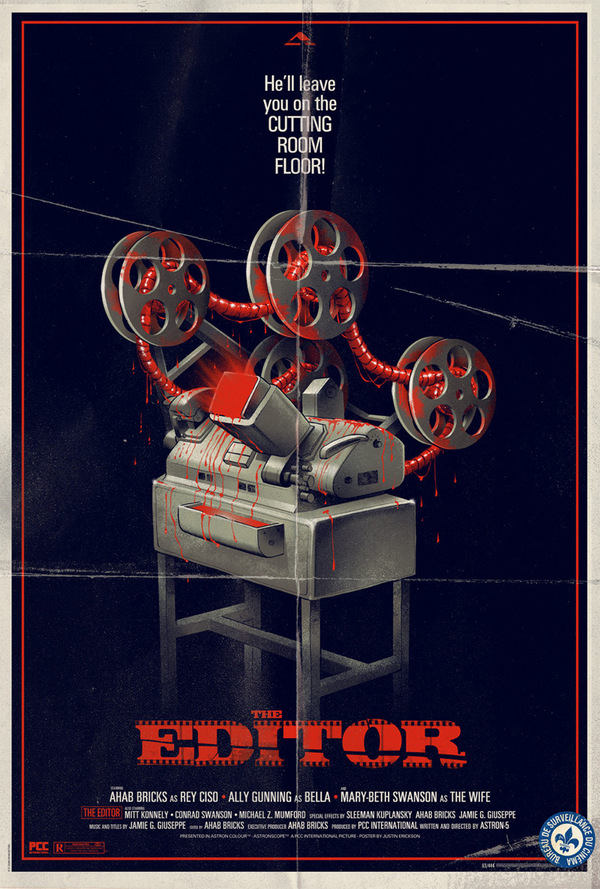
My third day at the festival began with one of my most anticipated features: Astron-6’s latest Canuxploitation opus THE EDITOR. Designed as a spoof/tribute to the Italian giallo films of the 70s (though leaning as heavily on the later supernatural fare from Dario Argento and Lucio Fulci such as SUSPIRIA and THE BEYOND), THE EDITOR is inconsistent, but frequently hilarious, and shows a sense of style that is a massive leap forward from the filmmaking collective’s two previous efforts. Those unfamiliar with the films being referenced might not squeeze as much enjoyment out of the intentionally lousy dubbing and incoherent plot, but there’s enough general silliness and quality gags (including a face-ripping scene that had our audience laughing uproariously) to satisfy general audiences.
A post-screening Q&A from three members of the group revealed the film’s minuscule budget, which makes the final film seem like even more of an accomplishment. It’s time for Astron-6 to break out, and hopefully THE EDITOR will be their stepping stone to bigger and better things.
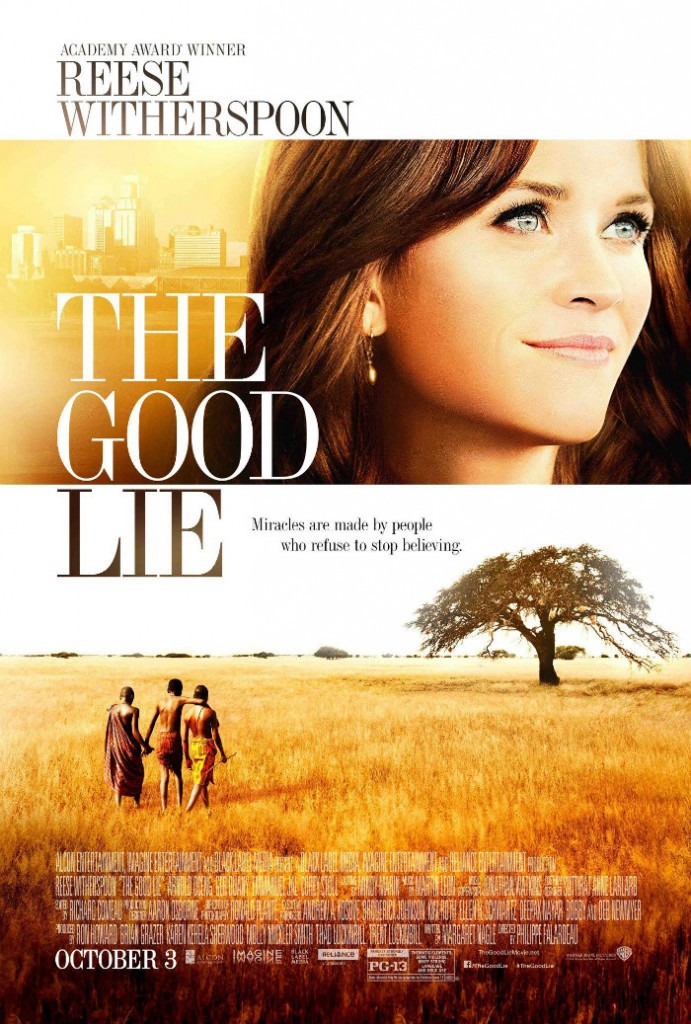
Next up was a strangely out-of-character TIFF film for me, the Reese Witherspoon starring THE GOOD LIE from Canadian director Philippe Falardeau. I went in extremely wary of the film, particularly because of its maudlin, cliche-ridden trailer which made me fear for the worst. Thankfully, the first half of the film doesn’t trade on the offensive fish-out-of-water “jokes” of the promotional material, instead presenting an appropriately harrowing tale of Sundanese refugee children surviving a thousand mile walk to a camp in Kenya. It’s only when we make the expected jump forward in time that things start to feel depressingly familiar. While I’m sure one could make the case that all of the difficult cultural transitions the characters have to make are based on real incidents, it often veers dangerously close to Balki from “Perfect Strangers” territory. Too simple to be effective.
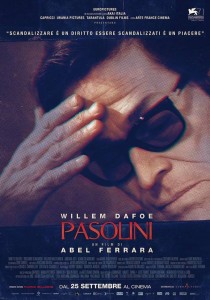
I had higher hopes for the always intense Abel Ferrara’s portrait of the final 24 hours of controversial director/actor/poet/writer Pier Paolo Pasolini. Filmed almost entirely in Italian (save the lead performance from Willem Dafoe), PASOLINI takes obvious pains to paint the great artist as a conflicted, uncompromising, difficult character (like Ferrara himself). Aside from some sexually graphic flashbacks, it’s all told in a fairly straight-forward manner – with the most revealing moments coming from a portion where Pasolini is interviewed about his political and social interests. Much more interesting are the attempts to dramatize pieces of Pasolini’s final script (featuring Pasolini’s usual muse Ninetto Davoli), and of course the recreation of the artist’s violent death. It’s a film that requires more than a passing knowledge of its subject – and director – to fully appreciate, and Dafoe’s nuanced performance is still more distracting than engaging. A minor disappointment.
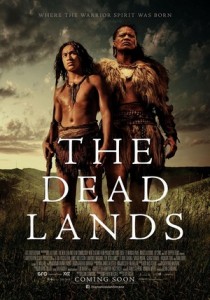
I had muted expectations for my final film of day 3: Toa Fraser’s Maori martial arts film THE DEAD LANDS, which promised to do for Maori fighting what ONG BAK did for muay thai and what THE RAID did for pencak silat. Sadly, I don’t expect THE DEAD LANDS to prompt a wave of imitators, as while it’s certainly action packed, and the fight scenes are well staged, the frenetic editing makes it extremely difficult to watch. The performers are obviously skilled, but the combat is muddled and is so frantic that none of it makes much of an impact. Thankfully, it’s not a total loss, as the unique cultural elements and weaponry hold some definite appeal, and the performers – particularly the hulking Lawrence Makoare – are terrific. A more sedate touch could have worked wonders for the material.
What’s that? Time for some sleep? Don’t mind if I do.
How can you tell that I’m a film festival novice? September 13th marked my first ever FIVE FILM day – which is basically an everyday routine for some of your more professional critics. I’d generally prefer that my eyeballs not leap out of my skull and try to strangle me, so I decided to only run the gauntlet for a single day – and what a day it was!
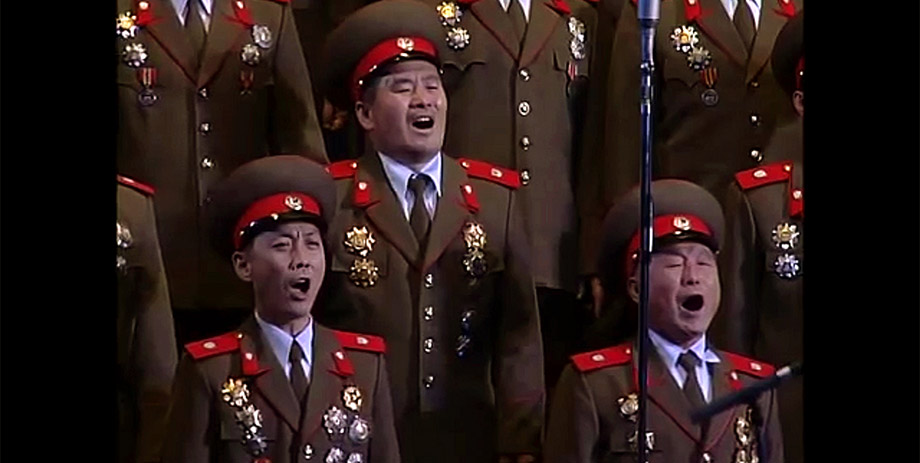
I started with the modest travelogue SONGS FROM THE NORTH from Soon-Mi Yoo, a film essay composed of amateur travel video, clips from propaganda features and staged musical performances from North Korean television. It’s meant to uniquely demonstrate the complicated, often contradictory relationship between the South and the North (best demonstrated by the filmmaker briefly interviewing her own father about his experiences in post WWII South Korea), but I found it to be a muddled, threadbare mess of a film. There’s a hint of a strong idea here, and attempts to cut through the simplistic derision reserved for North Korea in the West, but it’s neither very revealing or enlightening – aside from a few candid moments where the plastered smiles of North Korean workers momentarily drop.
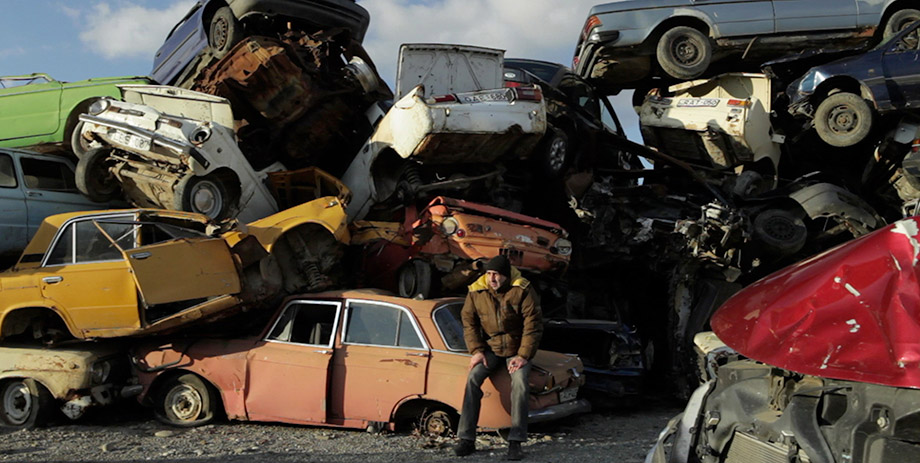
Next up was the darkly comic DON’T BREATHE from celebrated Georgian filmmaker Nino Kirtadze, which manages to wring surprisingly subtle humor from the hypochondria-based anxiety of a middle-aged couple. Kirtadze spent months living with a real-life husband and wife, delicately weaving their actual life (and work) drama into her story, gently mocking some of their habits while remaining clearly very affectionate for the pair. The humor is never forced and comes from an extremely relatable place, but the film works best when the audience is aware of the unique context of its creation.
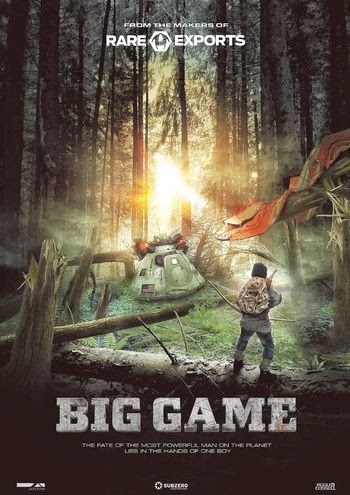
Back to more genre fair with the raucously entertaining new film from RARE EXPORTS director Jalmari Helander. BIG GAME could have easily coasted by entirely on the concept of “Samuel L. Jackson as the President of the United States”, but it’s really a particularly rip-roaring children’s adventure film with a 13-year old Finnish boy participating in a right-of-passage solo hunt running into the president’s landed rescue craft (after an attack destroys Air Force One). Purposely silly at times, the film still manages to play its fantasy scenario rather seriously, and there’s some wonderfully sweet chemistry between the stubborn Onni Tommila (from RARE EXPORTS) and Jackson’s president. It might be a bit intense for young kids, but hits that PG-13 sweet spot that young teens should really dig. Curious to see if the film’s big sweary moment makes it into the final released version.
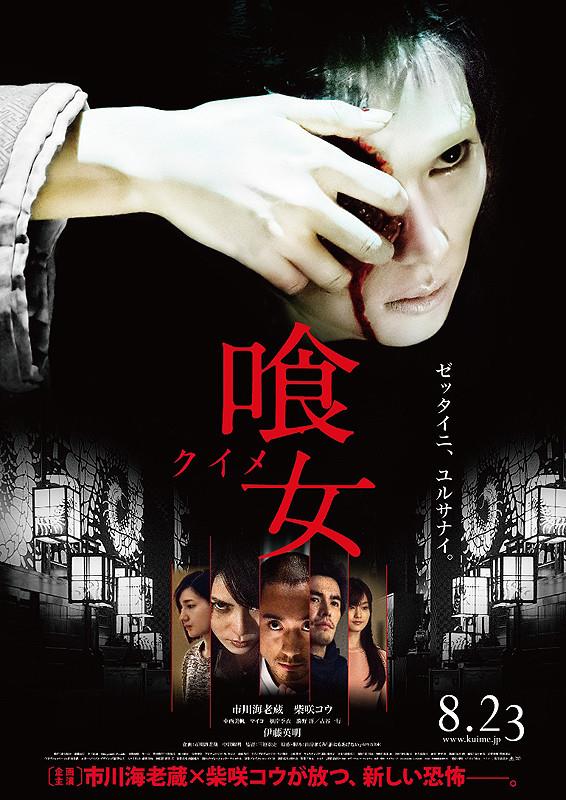
I feel like we’ve all started to take Takashi Miike’s productivity for granted, particularly in this recent stage of his career which finds him bouncing around from action epics to video game adaptations to children’s films. While OVER YOUR DEAD BODY has already proven to be divisive among critics for its slow pacing and often impenetrable cultural references, I found Miike’s obvious patience for the material to be quite refreshing, with the typically blood-soaked climax feeling well earned after a lengthy build. The action revolves around a stage production of the 19th century tale of ghostly revenge “Yotsuya Kaidan”, with the complex relationships between the actors soon causing the supernatural elements to spill out into real-life. The stage portions are beautifully presented, and while the parallels between the events of the play and the off-stage action weren’t always immediately apparent to me, there’s enough creepy action and Miike-an touches to satisfy patient fans of the director.
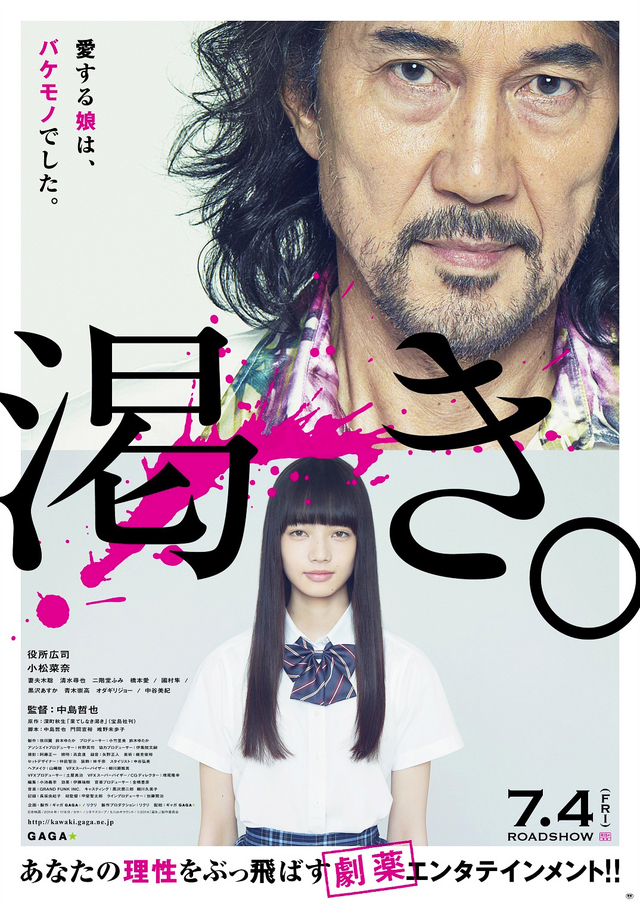
Unexpectedly, the day’s final film much more closely resembled the insane mid-90s output of Miike. THE WORLD OF KANAKO from CONFESSIONS director Tetsuya Nakashima is a frenetic, grime-filled descent into depravity that takes the anti-hero template of the films of Seijun Suzuki (or even Sonny Chiba’s mid 70s work) to its logical extreme. Kôji Yakusho is a wild animal in the lead as ex-cop Akikazu Fujishima, who desperately searches for his missing daughter while violently dispatching anyone that gets in the way of his path of self-destruction. Your enjoyment of the film will depend greatly on your ability to enjoy spending time with a group of thoroughly despicable characters, but it’s hard not to be impressed by Nakashima’s obvious confidence in his ability to weave the material together. Not as much fun as the throwback opening credits might prepare you for, but definitely never boring.
My wife and I bid adieu to REWIND THIS! director Josh Johnson (who joined us for the KANAKO screening), before grabbing a late dinner at a nearby BBQ place. This led to a rather unique visual as we witnessed the middle-aged woman who owned the restaurant slapping her son (who worked the front counter) in the face for some unknown infraction. He seemed rather non-plussed by the whole thing, but my wife and I just stared slack-jawed as this assault happened a few inches away from us. At least the chicken was good!
Final day was – shockingly – rather light, as I originally hoped to attend the final screening of Sion Sono’s TOKYO TRIBE but found the screening to be almost immediately sold out. Even a later attempt to get in via the rush line proved to be unsuccessful. After entirely flipping out over Sono’s WHY DON’T YOU PLAY IN HELL last year, not being able to see his (equally bonkers looking) followup was one of my bigger disappointments of the festival.
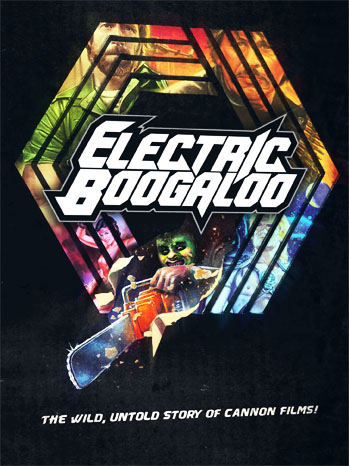
But I couldn’t stay bummed for long, as my final film of the festival was Mark Hartley’s latest film documentary ELECTRIC BOOGALOO: THE WILD, UNTOLD STORY OF CANNON FILMS. If you’ve already checked out Hartley’s earlier docs NOT QUITE HOLLYWOOD (about Ozploitation films) and MACHETE MAIDENS UNLEASHED (about exploitation films made in the Philippines in the 1970s and 1980s), then you probably know what to expect here: copious amounts of lurid film clips interspersed with talking-head interviews from a variety of luminaries – from Elliott Gould to Richard Chamberlain to Robert Forster to Michael Dudikoff.
While ostensibly the story of the Cannon film company, it’s really the tale of Menahem Golan and Yoram Globus; the Israeli cousins who released a series of inane schlock action films throughout the 1980s before going their separate ways (and releasing competing Lambada films ON THE SAME DAY in 1990). While often hilarious, the film amounts to a series of fairly ridiculous failures, from (the Menahem Golan-directed musical epic) THE APPLE to awful (though well-loved) properties like MASTERS OF THE UNIVERSE and OVER THE TOP. The anecdotes around these films are incredibly entertaining, but become a bit exhausting after 107 minutes of crushing disappointment from two creative, but incredibly misguided, salesmen. Still, fans of the earlier documentaries will eat this stuff up, and it’s nice to see a few rarely-seen faces being interviewed.
And that’s it! While the highs of my 2014 TIFF experience were not quite as high as in recent years, the average quality was still quite respectable. Must-sees include A HARD DAY, RED ARMY and – in particular – THE LOOK OF SILENCE. Cult film fans will want to keep their eyes out for THE EDITOR, ELECTRIC BOOGALOO: THE WILD, UNTILD STORY OF CANNON FILMS and BIG GAME.
— DOUG TILLEY.
- [NO-BUDGET NIGHTMARES] PODCAST #80: PLAGA ZOMBIE (1997) - July 25, 2016
Tags: Astron-6, Big Game, Cult, Electric Boogaloo, festival, Good Lie, gore, Horror, Pasolini, Reese Witherspoon, Takashi Miike, TIFF, World of Kanako


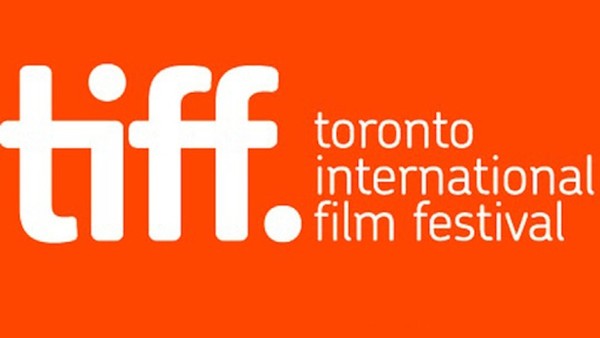

No Comments